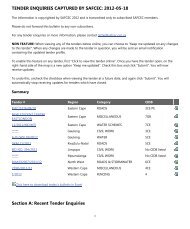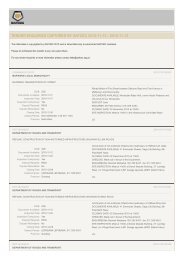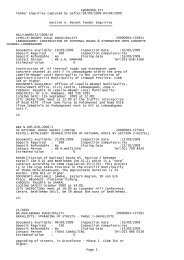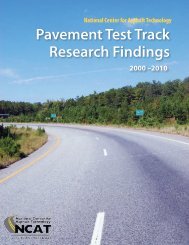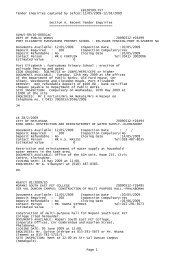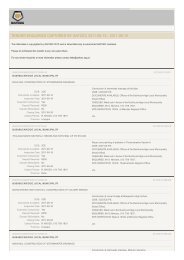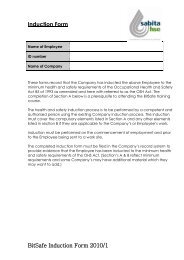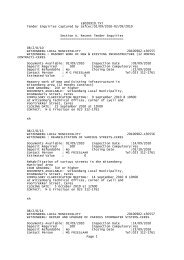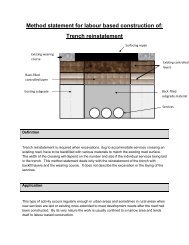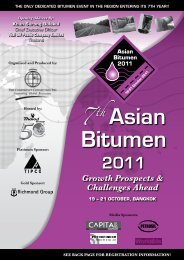DIGEST 2006 - Sabita
DIGEST 2006 - Sabita
DIGEST 2006 - Sabita
Create successful ePaper yourself
Turn your PDF publications into a flip-book with our unique Google optimized e-Paper software.
South Africa's education system:<br />
A systemic overhaul is vital to<br />
sustainable skills acquisition<br />
Emile Horak<br />
Professor and Head of Department<br />
of Civil Engineering<br />
and Biosystems Engineering<br />
University of Pretoria<br />
One of the realisations<br />
South Africa has<br />
experienced since 1994<br />
is that the welcome to the<br />
international scene had a<br />
sweet as well as a bitter side.<br />
The sweet side was the<br />
obvious miracle of democracy<br />
and all it brought to all our<br />
people. The down-side of<br />
democracy is that it also<br />
brings international<br />
competitiveness to your door,<br />
together with a lot of bitter<br />
lessons.<br />
Michael Porter (1990) studied the<br />
international competitiveness of<br />
nations, and he found that the<br />
quality of education, and<br />
particularly that in science, maths<br />
and technology, is one of the main<br />
underlying factors influencing the<br />
success of a nation in such a<br />
globally competitive situation.<br />
Lawless (2005), in her study on<br />
trends and figures in the civil<br />
engineering profession in South<br />
Africa, showed that for both<br />
medical and all engineering<br />
professionals in SA, the ratio of<br />
population to professionals was<br />
between 2000-2500:1 while for<br />
first world countries it ranges<br />
between 100-500:1. This disparity<br />
in benchmarking with the<br />
developed world can be further<br />
verified in Figure 1 (see following<br />
page), which shows the results of<br />
a recent study (Fricke et al, <strong>2006</strong>)<br />
of the ratio of persons of the<br />
24-year old population per country<br />
qualified in Science and<br />
Engineering (S&E).<br />
This clearly shows that South<br />
Africa is not even the leader in<br />
Africa, and extremely weak when<br />
benchmarked against Japan, the<br />
UK or the Nordic countries. The<br />
use of 24-year olds also implies a<br />
longer term impact, as it is<br />
persons of that age, with the right<br />
skills and qualifications, who will<br />
sustain any competitive position<br />
over the next 10 to 15 years.<br />
The recent economic growth in SA<br />
has been spectacular by all<br />
standards, but the realisation that<br />
sustainability may become an<br />
45



